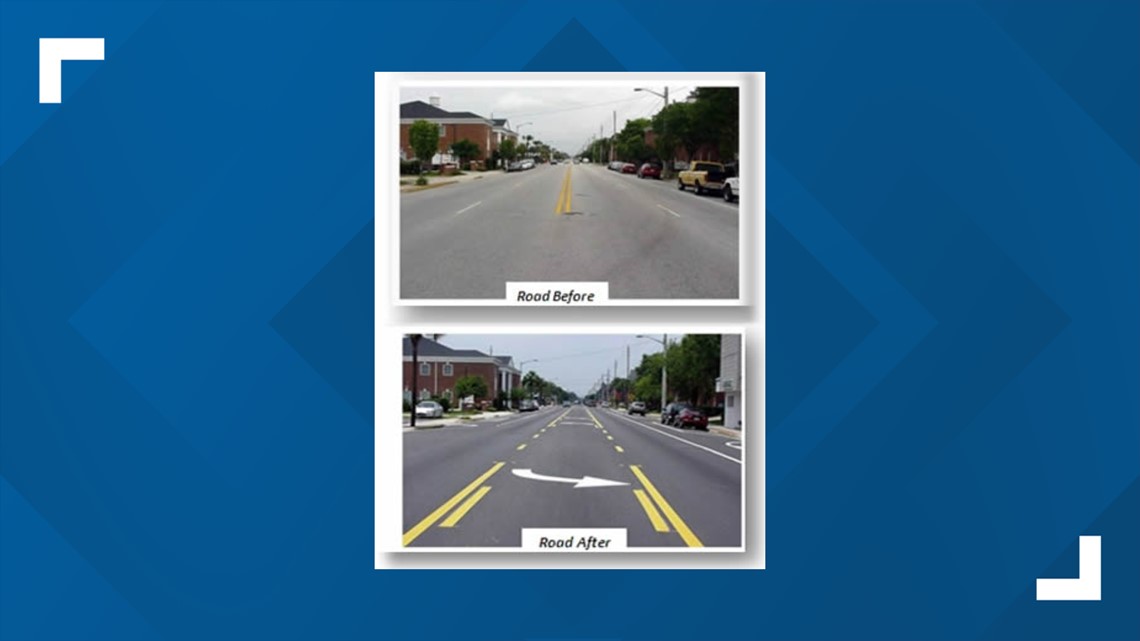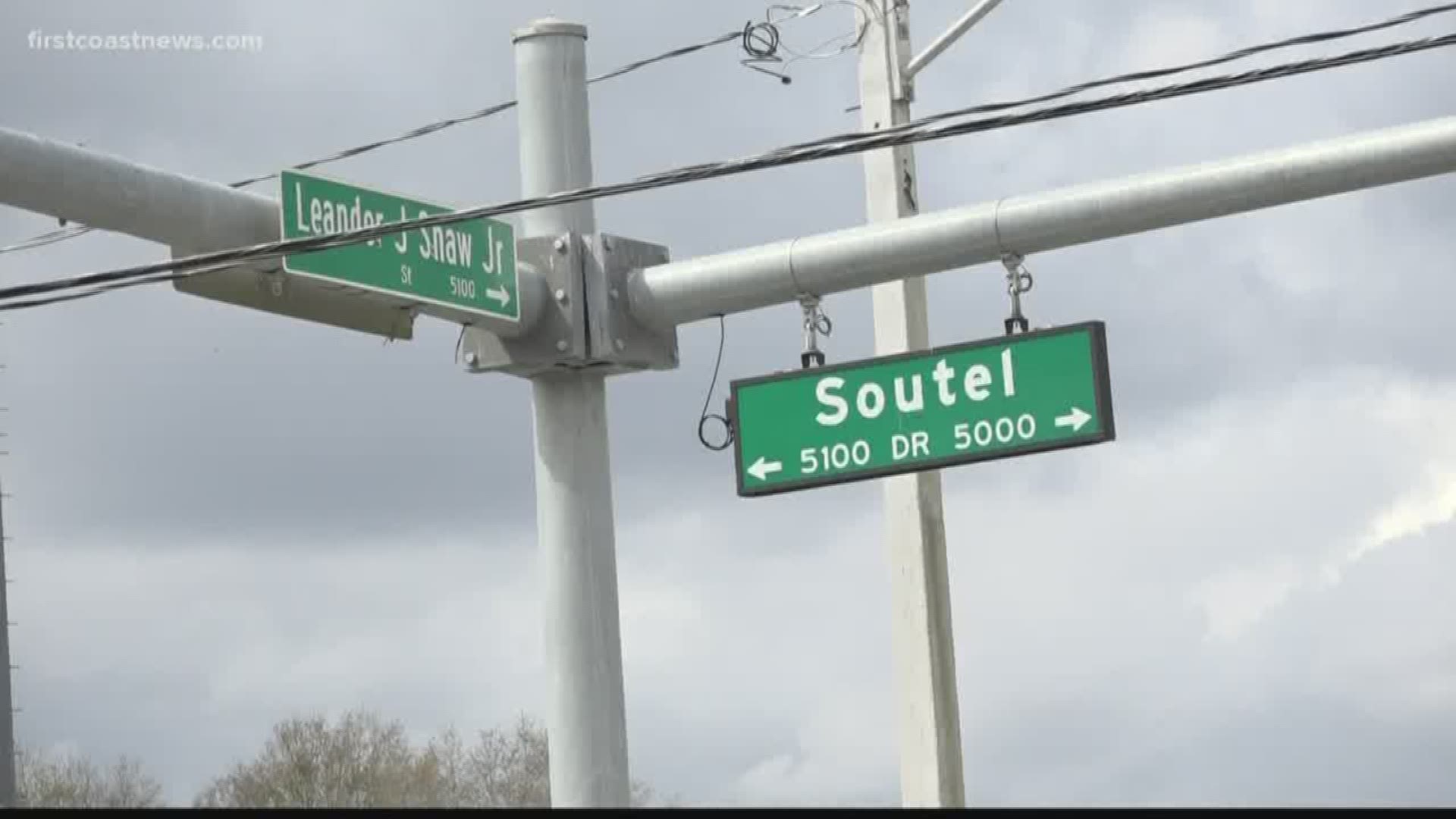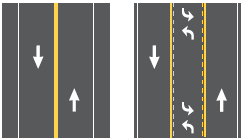JACKSONVILLE, Fla. — A deadly crash that took the lives of two elderly women on Soutel Drive in January has sparked renewed concerns of safety on the road in Northwest Jacksonville, while city staff move ahead with plans to reduce lanes.
Family members of the late Edna Holton gathered Wednesday evening at the intersection where the fatal crash occurred, advocating for change ahead of a community meeting spearheaded by Councilwoman Brenda Priestly Jackson at the Legends Center.
"People are speeding on this road all the time," said Edna Holton's daughter Latasha Holton. "There really needs to be a turn signal."
Della Laliberte, 92, was a longtime resident of the Sherwood Forest neighborhood off Soutel, and a neighbor of Edna Holton. She was driving south on Soutel with Edna Holton as a passenger, both heading to a community association meeting at the Legends Center on January 16 when the crash happened.
Laliberte went to make a left turn to enter the parking lot of the Legends Center at Leander Shaw Jr. Street when her car was hit by a driver heading in the opposite direction. There is a left turn signal for the northbound lanes of Soutel at that intersection, but not for the southbound lanes.
Edna Holton passed on January 25, and Laliberte on February 24.
"To lose two faithful members doing what they loved to do and being there for their community to me is really kind of senseless," said Eunice Barnum of the Sherwood Forest-Paradise Park Community Association. "I think the light would have made a great deal of difference."
The meeting the two would have attended was to discuss other issues, most revolving around safety, along Soutel Drive.
"I was very shocked and hurt," said Leola Williams, a member of the community association. "If there had been a turning arrow and she had been able to turn, she would not have had to worry about oncoming traffic. It should not have happened."
Meanwhile, the city is working on a wide-ranging plan that could totally transform Soutel Drive. Staff and officials are looking at a concept called a "road diet" that they hope will improve safety by reducing lanes and adding improvements.
As the road currently operates, there are two lanes in each direction with no medians. Under the new model, there would be one lane in each direction with a center turn lane and bike lanes along the sides.
City planners said the new model would allow for bike lanes, raised medians for safer pedestrian crossings and would cut down on speeding and left-hand turn crashes.
"If we do this lane repurpose, [drivers] only have to cross one lane of traffic," said Laurie Santana, Chief of Transportation Planning for Jacksonville. "They don't have to turn against two lanes of traffic."
Santana and other city staff are calling the plan "traffic calming," saying that the improvements would slow drivers down. She said the way the road is designed now discourages people from walking along or crossing it.
"People are just speeding through there and its dangerous," she said.
The Federal Highway Administration refers to road diets as improvement projects that "remove travel lanes from a roadway and utilize the space for other uses and travel modes."
Many renderings of completed road diet projects include added bicycle lanes and a greater distance between vehicles and pedestrians. Other common features include turn lanes, bus lanes, pedestrian refuge islands and landscaping improvements.


But some road diet projects have been faced with criticism, with opponents saying planners are attempting to "make it so miserable to drive that people will have no choice but to choose other ways to travel," according to the Rice Kinder Institute for Urban Research.
The FHWA said benefits of road diets include "crash reduction of 19 to 47 percent, reduced vehicle speed differential, improved mobility and access by all road users, and integration of the roadway into surrounding uses that result in an enhanced quality of life."
City staff referenced the 19 to 47 percent statistic in their own presentation Wednesday, adding that left turns are a particular area of concern on Soutel.
Barnum and others have expressed concerns about how the lane decrease could impact businesses along the corridor, which would stretch from Lem Turner to New Kings Road.
"There are other elements of that road diet that we could utilize to make the street a lot safer without reducing the lanes," Barnum said.
At Wednesday's meeting, city staff said studies showed Soutel's current traffic count is 1,169 vehicles per hour at its peak, and that the new design would have a capacity of 1,700 per hour. Priestly Jackson noted that the width of the road would not be changed, allowing for a return to four lanes in the future if needed.
Other elements of the plan include improved lighting, traffic signal reconfiguration and a new turn lane at New Kings Road.
The city has estimated construction could start in around a year, but Edna Holton's family and friends are hoping for some changes to arrive sooner than that. In particular, the turn light at the intersection where the crash happened.
"You have other communities that don't have to go through what we go through here on the Northside," Williams said. "When we drive around we see all these improvements in these other communities, we're saying 'Why not us?"


